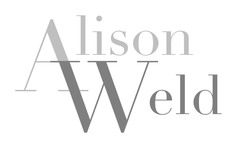|
Letter 12:
Dear Stella |
Dear Stella, I was afraid that having gallery representation would adversely affect my painting because I have been painting on my own and against the dominant grain for so long. Because my works are bold I forget that I am actually a postmodernist and not an abstract expressionist. And generally feel that I am without peers. But my first year of representation was very productive, both on canvas and on paper. I began a new series of oils prior to meeting Robert Steele and several months after our studio visit began a new series of acrylics on paper. I've been showing in New York City since I was thirty-four but have never been given a contract by a gallery and never thought I was a priority. I showed with Eric Stark at his first gallery in Soho and afterwards with Susan Schreiber and then with Anita Shapolsky. I always felt that my work was respected more than I was. I don't look like a New Yorker and my Anglo features make me appear traditional and conservative. As a young female art student, I was told that my prettiness would be a liability to my career. But I pierced my ears anyway and began to wear earrings after moving to New York City. I didn't think that the male art professors at Alfred were the final word about my life. But from today's perspective I wonder whether the professors at Alfred were talking in code about my being a White Anglo-Saxon Protestant? At least I am Scottish the critic Vivien Raynor told me. When I stop working on a painting, mulling it over, unsure as to whether it is finished, it nags at me if it is unresolved as if I had a bad conscience. My Scottish Presbyterian grounding does not let me keep a weak painting around for more than several months. I look and look, slowly understanding my response of dislike or discomfort. If I change my mind about a work after I have had it photographed, I don't let that affect my decision to change the piece. The wasted outlay of money bothers me a little but I rationalize it by saying that being a painter these days is financially a losing proposition anyway. Alison |
